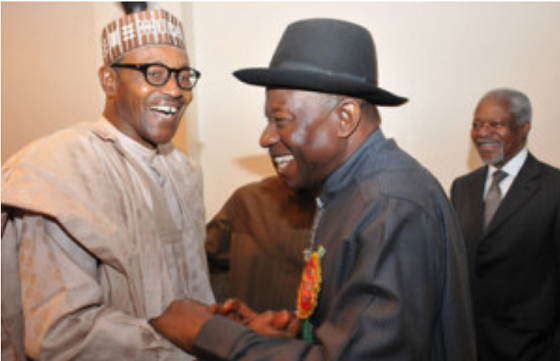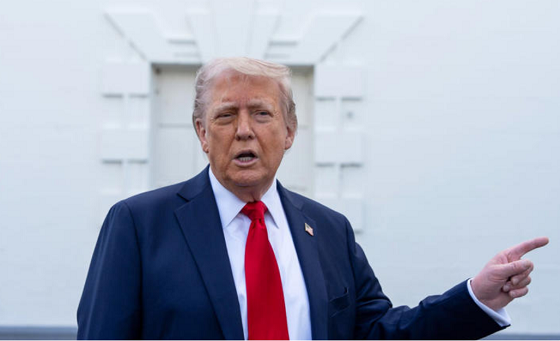Post Published on September 14, 2024 by Anthony Ekata
Wednesday January 14, 2015, will remain a major milestone in Nigeria’s political journey as, on that day, leaders of the country’s major political parties signed a peace pact, ahead of the February 14 presidential election, to reject pre and post-election violence. This was a pleasant turn of events for concerned Nigerians and the international community.
On hand to facilitate the peace deal tagged ‘The Abuja Accord’ were two of Africa’s foremost diplomats – former UN Secretary-General, Kofi Annan of Ghana and Nigeria’s own former Commonwealth Secretary-General, the genial Chief Emeka Anyaoku. This time, the accord was to avoid utterances and actions that could precipitate civil unrest as distinct from the August 1995 Abuja Accord signed in the Nigerian capital in an attempt to end the festering civil war in Liberia.
The articles of the pact, signed at the 2015 General Election Inter-Party Sensitisation Workshop on Non-Violence, organised by the offices of the National Security Adviser and the Special Adviser to the President on Inter-Party Affairs were:
- To run issue-based campaigns at national, state and local government levels. In this, we pledge to refrain from campaigns that will involve religious incitement, ethnic or tribal profiling both by ourselves and by all agents acting in our names
- To refrain from making or causing to make in our names or that of our party any public statements, pronouncements, declarations or speeches that have the capacity to incite any form of violence before, during and after the election
- To forcefully and publicly speak out against provocative utterances and oppose all acts of electoral violence, whether perpetrated by our supporters and or opponents
- To commit ourselves and political parties to the monitoring of the adherence to this accord if necessary by a national peace committee made up of respected statesmen and women, traditional and religious leaders
- All the institutions of government, including INEC and security agencies, must act and be seen to act with impartiality
The two foremost candidates in the 2015 presidential election, incumbent president Dr Goodluck Jonathan of the Peoples Democratic Party and General Muhammadu Buhari of the All Progressives Congress signed the accord along with 12 other presidential flag bearers.
Skeptics were quick to wonder aloud whether the ‘warm embrace’, as the hug between President Jonathan and General Buhari was widely depicted in the media, was actually warm. Someone even jokingly remarked that the way General Buhari’s right hand was positioned during the embrace, President Jonathan needed to check whether the key to the Presidential Villa was still in his pocket.
But seriously, warm or hot embrace, beyond the gap-toothed smile of the usually stern-looking General Buhari and the characteristic grin of Dr Jonathan, is the fundamental question of sincerity of purpose. Both front runners in the race to the Presidential Villa have to show, through deliberate action, that they are genuinely committed to the pact. For starters, they must themselves avoid provocative statements while on their campaign trails and stick to issues as required by Article One of the accord. It is true that some of their statements are triggered by anger at the allegations and insinuations of the other party. But they should be able to tamper their tempers with reason and remember that their incendiary utterances and body language are capable of inflaming tempers among their millions of supporters. Close friends and even married couples have been reported to fall out with each other because of real or perceived threats to their allegiance to the presidential candidates.
For instance, the social media space is currently dominated by high-tension brick-bats between the ‘fans’ of Goodluck Ebele Jonathan (GEJ) and General Muhammadu Buhari (GMB). One of the trending allegations is that whereas GMB denounced the burning of GEJ’s presidential campaign bus in Jos, GEJ kept quiet when the secretariat of the All Progressives Congress was set ablaze in Port Harcourt. Finger-pointing must stop, as this is not a season to x-ray who is to blame for what is wrong but what should be done to right the wrong. Also, tale bearers who add salt and pepper to everything they hear or half hear should learn to tame their tongues while puppets who dance more than their masters’ pull on their strings should restrain their steps.
There is the critical issue of creating awareness among the electorate and Nigerians in general about the peace path the leadership has decided to tread. Most Nigerians obviously did not witness the signing of the Abuja Accord. Those who could have watched it on television either have no TV sets or probably had no electricity at the time. Some have no access to newspapers either for the reason of the remoteness of their locations or for factors of affordability. These are realities that should be considered by the Independent National Electoral Commission, the political parties, and all well-meaning civil society organisations when embarking on voter education.
Of course, the media has to play its traditional role here. For once, let the love for the nation supersede the love for profit. Let sensationalism give room for sensibility. When President Jonathan said at the sensitisation workshop that election rigging does not NECESSARILY cause violence (a statement he justified with examples), some media outfits conveniently threw away NECESSARILY and went to town with ‘Rigging does not cause Violence – GEJ’. I have also seen preposterous statements published by some ‘reputable’ news organs such as, “now that Buhari’s victory is inevitable”. This is selfish, irresponsible, misleading and distasteful, to say the least.
Unfortunately, we live in a society peopled by people who are intrinsically selfish and members of the media constituency cannot be fully detached from this society. It is inevitable, therefore, that some of their submissions would be coloured by subjective opinions. However, they should be able to exercise their role around the golden mantra, ‘Facts are sacred..’, and try as much as possible not to distort facts. That is why they are professionals.
As I wrote in a previous piece, whichever government comes in post-2015 election should prioritise strengthening democratic institutions, including the legislature, the judiciary and the civil service. If there is prompt and effective dispensation of justice (the lack of which GMB bemoaned at the sensitisation workshop), the merchants of political rascality and general impunity would think twice before plying their trade.
It is pertinent at this juncture to commend the initiators of the Abuja Accord and the political actors who subscribed to it. One would have loved to see all past heads of government at that event, especially one or two of them who profess to love Nigeria more than any other Nigerian.
President Jonathan aptly summed up the essence of the accord in the words of American theologian and author, James Freeman Clarke – “Politicians think of the next election; statesmen think of the next generation”. No doubt, there is a big gulf between mouthing the words and acting the words. It is hoped that the president will assume the lead role in acting the words.
From Random Thoughts: A Collection of Essays & Poems by Tony Ekata
First published @ https://www.newsplus.com.ng/abuja-accord-beyond-hugs/ (defunct)







